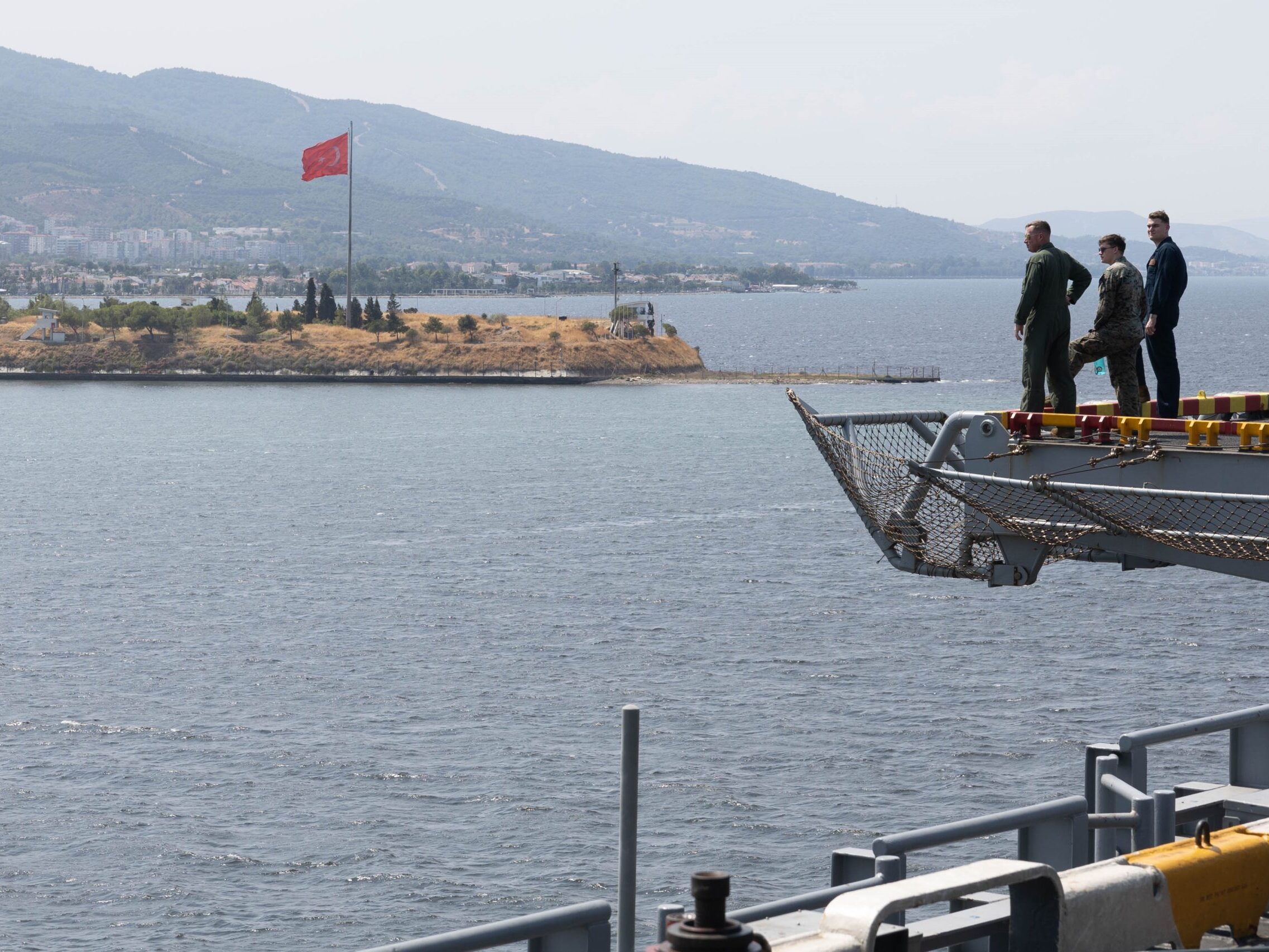Will NATO deal warm up U.S.-Türkiye ties?
STORY: Will NATO deal warm up U.S.-Türkiye ties?SHOOTING TIME: fileDATELINE: Feb. 12, 2024LENGTH: 00:03:42LOCATION: AnkaraCATEGORY: POLITICSSHOTLIST:1. various of an old meeting of Turkish President Recep Tayyip Erdogan with U.S. President Joe Biden in Spain2. various of the headquarters of NATO3. various of the trilateral meeting of Turkish President Recep Tayyip Erdogan with NATO Secretary General Jens Stoltenberg and Sweden Prime Minister Ulf Kristersson in Lithuania (courtesy of Turkish Presidency)4. various of Turkish F-16 fighter jets 5. various of an old high council meeting of Türkiye-Sweden-Finland and NATO in Türkiye6. various of an old meeting of Turkish President Recep Tayyip Erdogan with U.S. President Joe Biden in Indonesia7. SOUNDBITE 1 (Turkish) : ALI OGUZ DIRIOZ, Associate professor of international relations at Ankara’s TOBB University of Economics and Technology8. SOUNDBITE 2 (Turkish) : ALI OGUZ DIRIOZ, Associate professor of international relations at Ankara’s TOBB University of Economics and Technology9. SOUNDBITE 3 (Turkish) : ALI OGUZ DIRIOZ, Associate professor of international relations at Ankara’s TOBB University of Economics and Technology10. SOUNDBITE 4 (Turkish) : ALI OGUZ DIRIOZ, Associate professor of international relations at Ankara’s TOBB University of Economics and TechnologySTORYLINE:Türkiye’s ratification of Sweden’s NATO entry which led to the approval of weapon sales by the United States has given a boost to the uneasy relationship between the two countries, but other thorny issues remain, experts said. Following nearly two years of delay, the Turkish parliament ratified the Nordic country’s entry to the Western military alliance late last month, a decision swiftly approved by President Recep Tayyip Erdogan. Subsequently, the United States has approved the multi-billion sale of 40 F-16 fighter jets to Ankara and modernization packages for its existing fleet of U.S.-made aircraft. Erdogan made Sweden’s membership contingent on approving the sale of the new planes. The conclusion of this long-sought deal may reverse a downtrend in bilateral relations that have caused tensions between the two NATO allies in the last decade, according to analysts. SOUNDBITE 1 (Turkish) : ALI OGUZ DIRIOZ, Associate professor of international relations at Ankara’s TOBB University of Economics and Technology”The Sweden-F-16 deal will certainly have a positive impact on bilateral ties.” In Dirioz’s view, it will be important for both sides to continue the momentum to some extent and gradually reduce the problematic points in bilateral relations. SOUNDBITE 2 (Turkish) : ALI OGUZ DIRIOZ, Associate professor of international relations at Ankara’s TOBB University of Economics and Technology”Türkiye and the U.S. are allied countries. They are together in NATO, that is, in a security alliance. However, in addition to common points, there are also problematic points and disagreements. This is normal to some extent. Because no matter which countries you consider, it is difficult to find examples that completely overlap with each other and that does not have problems in bilateral relations between countries. The approval of Sweden’s NATO membership by the Turkish Grand National Assembly and the U.S. administration’s green light for the sale of F-16s to Türkiye are positive steps and will accelerate bilateral relations.”Soner Cagaptay, director of the Turkish Research Program at the Washington Institute, echoed Dirioz’s remarks. He told Xinhua that the end of the Ankara-Washington standoff constitutes “the first real opportunity to kick off a much-anticipated virtuous cycle in U.S.-Türkiye ties” since key divergences in bilateral ties emerged a decade ago in Syria. Ankara has launched several incursions in northern Syria against Kurdish fighters of the People’s Protection Units (YPG), which it considers a “terrorist threat”. Turkish operations against the YPG have long been a source of strong disputes between Türkiye and the U.S., as the latter considers the Syrian Kurds to be an ally in the fight against the Islamic State and provides them with training, arms, and political protection. SOUNDBITE 3 (Turkish) : ALI OGUZ DIRIOZ, Associate professor of international relations at Ankara’s TOBB University of Economics and Technology”Türkiye and the U.S. have a different understanding of terrorism notion, and this is reflected in their opposite views regarding the Kurdish YPG faction in northern Syria. This deal may very well lead to different cooperation opportunities between the two allies, including Syria.”Cagaptay said he anticipates a possible invitation from U.S. President Joe Biden for his Turkish counterpart to meet him in the White House in the coming months.The Turkish leader has not officially visited the U.S. yet since Biden was elected in office in 2020.SOUNDBITE



